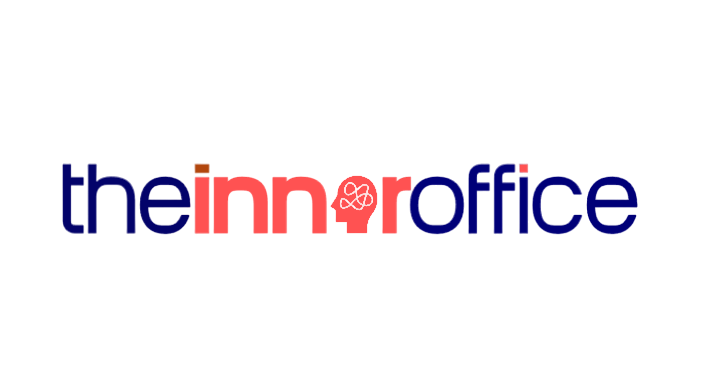The 4 PM Reality Check
It’s 4:17 PM on a Tuesday afternoon in Westlands, Nairobi. Your corner office overlooks the bustling city, a testament to years of hard work and strategic career moves. Your calendar shows three more meetings before you can even think about heading home. But there’s a problem: your brain feels like it’s wrapped in cotton wool, your third coffee has done nothing except make you jittery, and you’re re-reading the same email for the fifth time.
Sound familiar?
You’re not alone. Across Kenya’s corporate landscape—from the banking towers of Upper Hill to the tech hubs of Kilimani—a silent epidemic is unfolding. Successful professionals are winning in their careers while losing the battle for their own well-being.
The Paradox of Kenyan Professional Success
We’ve created an interesting contradiction in our professional culture. We celebrate the executive who arrives first and leaves last. We admire the manager who responds to emails at midnight. We promote the team leader who “powers through” without taking leave days. We’ve made exhaustion a badge of honor.
But here’s what we don’t talk about at those networking events or leadership forums: the cost.
Daniel, a finance manager at a multinational in Nairobi, discovered this the hard way. On paper, his life looked perfect. MBA from a respected university. Salary that made his parents proud. Respect from colleagues. A reputation for getting things done.
But Daniel couldn’t remember the last time he woke up feeling rested. His morning routine consisted of hitting snooze three times, dragging himself to the shower, and relying on coffee to jump-start his system. By mid-morning, he was irritable. By afternoon, he was struggling to focus. By evening meetings, he was barely present—physically there but mentally checked out.
His wife noticed the changes. His team felt them. But Daniel kept telling himself the same lie many of us tell ourselves: “This is just what success looks like. This is the price you pay.”
The Real Cost of Ignoring Your Well-Being
Let’s be brutally honest about what’s actually happening when we normalize professional exhaustion:
Your Cognitive Performance is Deteriorating
Research from Harvard Business School shows that chronic fatigue reduces cognitive performance by up to 40%. That’s not just feeling tired—that’s your decision-making abilities, problem-solving skills, and creative thinking capacity being cut nearly in half.
Think about the strategic decisions you made last week. Now imagine making them with 40% more mental clarity. How different might the outcomes have been?
Your Emotional Intelligence is Taking a Hit
When you’re running on empty, you don’t just lose energy—you lose patience. You lose empathy. You lose the ability to read the room and navigate complex interpersonal dynamics that are crucial for leadership.
Sheila, an IT project manager, found herself snapping at her team over minor issues. She didn’t recognize herself anymore. The compassionate leader who once mentored junior staff had been replaced by someone irritable and difficult to approach. Her team’s morale plummeted. Productivity suffered. And Sheila felt guilty, which only added to her stress.
Your Physical Health is Paying the Price
The World Health Organization now recognizes burnout as an occupational phenomenon. But long before you reach clinical burnout, your body is sending distress signals:
- That persistent lower back pain from sitting 10 hours a day isn’t just discomfort—it’s your body begging for movement.
- Those frequent headaches aren’t just stress—they’re often dehydration and poor posture combining forces.
- That weight gain around your midsection isn’t just aging—it’s cortisol from chronic stress changing how your body stores fat.
- Those sleepless nights with your mind racing through tomorrow’s to-do list—that’s your nervous system stuck in overdrive, unable to shift into recovery mode.
The Kenyan Professional Context
Here’s what makes this particularly challenging for Kenyan professionals: we’re navigating a unique set of pressures that compound the standard corporate stress.
The Extended Family Expectations
Success in Kenya is rarely individual. Your promotion means supporting siblings through school. Your salary increase means contributing to a family building project. Your bonus means being able to help during emergencies. These aren’t optional—they’re deeply embedded cultural obligations.
While this communal support system is beautiful and important, it also means the pressure to maintain high performance isn’t just about your own ambitions. You’re carrying the hopes and financial dependencies of multiple people. That weight adds layers of stress that many Western wellness guides don’t acknowledge.
The Infrastructure Reality
Even simple wellness advice becomes complicated in our context. “Just meal prep on Sundays” sounds great until you factor in unpredictable power outages. “Take a walking break at lunch” is harder when your office area doesn’t have safe, pleasant walking routes. “Reduce screen time before bed” becomes challenging when your evening hours are the only time you can catch up on work without interruptions.
We need wellness strategies that work with our reality, not against it.
The Hustle Culture
Kenya’s entrepreneurial spirit is admirable. But it’s created a culture where rest is seen as laziness and boundaries are seen as lack of ambition. Side hustles, consultancies, passion projects—we’re told to diversify our income streams and create multiple revenue channels. All good advice for financial security, but devastating for our well-being if we don’t have a sustainability strategy.
The Wake-Up Call
Anita, a CEO of a mid-sized company in Nairobi, thought she had it all figured out. She prided herself on her work ethic. 6 AM meetings before her international team logged off. Full day of back-to-back meetings. Evenings reviewing proposals and strategy documents. Weekends catching up on industry reading.
Then came the health scare. Nothing catastrophic—just her body finally forcing her to stop. Severe fatigue. Blood pressure concerns. Her doctor’s stern warning: “You need to make changes, or your body will make them for you.”
That was Anita’s wake-up call. She realized that her relentless pace wasn’t just affecting her—it was creating a culture of crisis in her entire organization. Her team was mirroring her unsustainable habits. They were burning out because she was burning out.
The Path Forward: What Actually Works
Here’s the truth that might surprise you: fixing this doesn’t require quitting your job, moving to a beach town, or spending two hours a day on wellness routines.
It requires strategic, incremental changes that fit into your actual life.
Start with Sleep: The Foundation of Everything
You’ve heard it before, but here’s why it matters specifically for your professional performance: quality sleep is when your brain consolidates learning, processes emotions, and clears out metabolic waste. Skimp on sleep, and you’re essentially trying to run high-performance software on a computer that never gets to clear its cache.
For busy professionals, this means:
- Protecting your sleep schedule as fiercely as you protect important meetings
- Creating a wind-down routine that signals to your brain it’s time to shift gears
- Understanding that sacrificing sleep for work makes you less productive, not more
Hydration: The Simplest Strategy You’re Probably Ignoring
Your brain is 73% water. Even mild dehydration—as little as 2%—affects your mood, energy, and cognitive performance. Yet most professionals sip coffee all day and wonder why they feel awful.
The fix is almost embarrassingly simple: keep water visible and make it a habit. Not a goal to hit by end of day, but a consistent pattern throughout your day.
Movement: Not Exercise, Movement
You don’t need to join a gym or train for a marathon. You need to break up the sitting. Studies from The Lancet show that even brief movement breaks improve circulation, reduce back pain, and boost energy levels.
This means building “movement snacks” into your day:
- Standing during phone calls
- Walking meetings when possible
- Two-minute desk stretches between meetings
- Taking stairs instead of elevators
Why This Matters Now More Than Ever
Kenya’s professional landscape is evolving rapidly. Remote work, global competition, artificial intelligence reshaping industries—the pace of change is accelerating. The professionals who will thrive aren’t just the smartest or most skilled. They’re the ones who build sustainability into their success strategy.
Think about the long game. You didn’t work this hard to get here just to burn out before you reach your full potential. You didn’t sacrifice weekends and family time to build a career that destroys your health.
The Choice Point
You’re at a choice point right now. You can continue on the current trajectory, hoping that things will somehow get better when the current project ends, when you get that promotion, when the busy season passes. (Spoiler: there’s always another project, another deadline, another busy season.)
Or you can recognize that sustainable high performance requires a different approach. One that acknowledges that your well-being isn’t separate from your professional success—it’s the foundation of it.
Daniel made changes. Not overnight, not perfectly, but consistently. He started with sleep and hydration. Added movement breaks. Learned to manage his energy, not just his time. Six months later, his team noticed the difference. His wife saw her husband come back. And Daniel’s performance reviews were better than ever—because he was actually present and sharp, not just physically showing up.
Sheila rebuilt her relationship with food and stress. She discovered that her sugar crashes were driving her irritability. She learned stress management techniques that actually fit into her schedule. Her team culture transformed as she modeled sustainable high performance.
Anita restructured her organization’s approach to work. She set boundaries, modeled healthy habits, and gave her team permission to do the same. Productivity didn’t drop—it increased. Because a well-rested, properly fueled team outperforms an exhausted one every time.
Your Next Step
This isn’t about perfection. It’s about progress. It’s about recognizing that the most successful professionals aren’t the ones who sacrifice everything for work—they’re the ones who build systems that allow them to sustain excellence over the long term.
The question isn’t whether you can afford to prioritize your well-being. The question is: can you afford not to?
Your corner office and impressive title won’t mean much if you’re too exhausted to enjoy them, too burnt out to be effective, or too unwell to continue.
Success shouldn’t cost you your health. And in Kenya’s competitive professional landscape, the real competitive advantage will belong to those who figure out how to maintain both.
The journey from exhaustion to sustainable high performance starts with a single decision: to stop treating your well-being as optional. Everything else flows from there.


A WordPress Commenter
September 27, 2025Hi, this is a comment.
To get started with moderating, editing, and deleting comments, please visit the Comments screen in the dashboard.
Commenter avatars come from Gravatar.